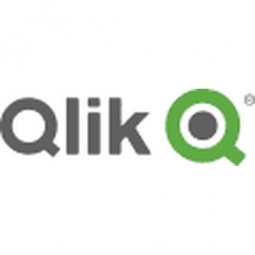下载PDF
Rounding the Bases: How Qlik Helped Us Bring Data Literacy Home
技术
- 分析与建模 - 实时分析
适用行业
- 医疗保健和医院
- 教育
适用功能
- 质量保证
- 人力资源
用例
- 预测性维护
- 实时定位系统 (RTLS)
服务
- 数据科学服务
- 系统集成
挑战
The article discusses the challenges faced by organizations in their journey towards data maturity. The first challenge is related to data quality. Organizations often have data quality issues, which become more apparent as they try to utilize the data. Issues can range from misspellings, inconsistent data entry methods, to software compatibility issues. Before any progress towards data-based decisions can be made, the data itself must be trustworthy. This requires creating mechanisms to ensure data quality. The second challenge is related to data literacy. Having great data is just part of the equation. Organizations must also have a genuine curiosity and the ability to ask the right questions. Most organizations are very familiar with asking, “what happened?” but the real power in analyzing data comes from more advanced questions. The final stage of intuitive growth involves reaching a level where insights about data trends lead to an ability to influence outcomes.
关于客户
The article does not provide a specific customer description. However, it mentions the author's experience with data journeys at several organizations, including his current role as the manager of education at 2Foqus Data & Analytics. The author is a Qlik Luminary, indicating a high level of expertise in using Qlik for data analysis. The author also shares his experience working on a healthcare service project titled Call To Balloon, which aimed to shorten the time between an emergency call and the performance of treatment. Another example provided is from the author's experience at UWV, where he was charged with writing the plan to centralize the QlikView Competence Center.
解决方案
The solution to the challenges faced by organizations in their journey towards data maturity involves several steps. The first step is to ensure data quality. This can be achieved by creating mechanisms to ensure data quality. For example, Qlik Sense users may find it useful to add a data quality report to the environment. The early steps in the journey must include creating some kind of data governance solution. The second step is to develop data literacy within the organization. This involves training people to analyze and argue with data. Platforms like Qlik Sense can make data reading and manipulation second nature, but people must be trained to analyze and argue. The final step is to develop a predictive analysis. This is where the true value for the company begins to emerge. Analyzing real-time product sales and production data can help a company avoid bare shelves. Traffic patterns and customer addresses can help you make an optimum choice for a new location.
运营影响
数量效益
相关案例.

Case Study
Hospital Inventory Management
The hospital supply chain team is responsible for ensuring that the right medical supplies are readily available to clinicians when and where needed, and to do so in the most efficient manner possible. However, many of the systems and processes in use at the cancer center for supply chain management were not best suited to support these goals. Barcoding technology, a commonly used method for inventory management of medical supplies, is labor intensive, time consuming, does not provide real-time visibility into inventory levels and can be prone to error. Consequently, the lack of accurate and real-time visibility into inventory levels across multiple supply rooms in multiple hospital facilities creates additional inefficiency in the system causing over-ordering, hoarding, and wasted supplies. Other sources of waste and cost were also identified as candidates for improvement. Existing systems and processes did not provide adequate security for high-cost inventory within the hospital, which was another driver of cost. A lack of visibility into expiration dates for supplies resulted in supplies being wasted due to past expiry dates. Storage of supplies was also a key consideration given the location of the cancer center’s facilities in a dense urban setting, where space is always at a premium. In order to address the challenges outlined above, the hospital sought a solution that would provide real-time inventory information with high levels of accuracy, reduce the level of manual effort required and enable data driven decision making to ensure that the right supplies were readily available to clinicians in the right location at the right time.

Case Study
Gas Pipeline Monitoring System for Hospitals
This system integrator focuses on providing centralized gas pipeline monitoring systems for hospitals. The service they provide makes it possible for hospitals to reduce both maintenance and labor costs. Since hospitals may not have an existing network suitable for this type of system, GPRS communication provides an easy and ready-to-use solution for remote, distributed monitoring systems System Requirements - GPRS communication - Seamless connection with SCADA software - Simple, front-end control capability - Expandable I/O channels - Combine AI, DI, and DO channels

Case Study
Driving Digital Transformations for Vitro Diagnostic Medical Devices
Diagnostic devices play a vital role in helping to improve healthcare delivery. In fact, an estimated 60 percent of the world’s medical decisions are made with support from in vitrodiagnostics (IVD) solutions, such as those provided by Roche Diagnostics, an industry leader. As the demand for medical diagnostic services grows rapidly in hospitals and clinics across China, so does the market for IVD solutions. In addition, the typically high cost of these diagnostic devices means that comprehensive post-sales services are needed. Wanteed to improve three portions of thr IVD:1. Remotely monitor and manage IVD devices as fixed assets.2. Optimizing device availability with predictive maintenance.3. Recommending the best IVD solution for a customer’s needs.

Case Study
HaemoCloud Global Blood Management System
1) Deliver a connected digital product system to protect and increase the differentiated value of Haemonetics blood and plasma solutions. 2) Improve patient outcomes by increasing the efficiency of blood supply flows. 3) Navigate and satisfy a complex web of global regulatory compliance requirements. 4) Reduce costly and labor-intensive maintenance procedures.

Case Study
Harnessing real-time data to give a holistic picture of patient health
Every day, vast quantities of data are collected about patients as they pass through health service organizations—from operational data such as treatment history and medications to physiological data captured by medical devices. The insights hidden within this treasure trove of data can be used to support more personalized treatments, more accurate diagnosis and more advanced preparative care. But since the information is generated faster than most organizations can consume it, unlocking the power of this big data can be a struggle. This type of predictive approach not only improves patient care—it also helps to reduce costs, because in the healthcare industry, prevention is almost always more cost-effective than treatment. However, collecting, analyzing and presenting these data-streams in a way that clinicians can easily understand can pose a significant technical challenge.






